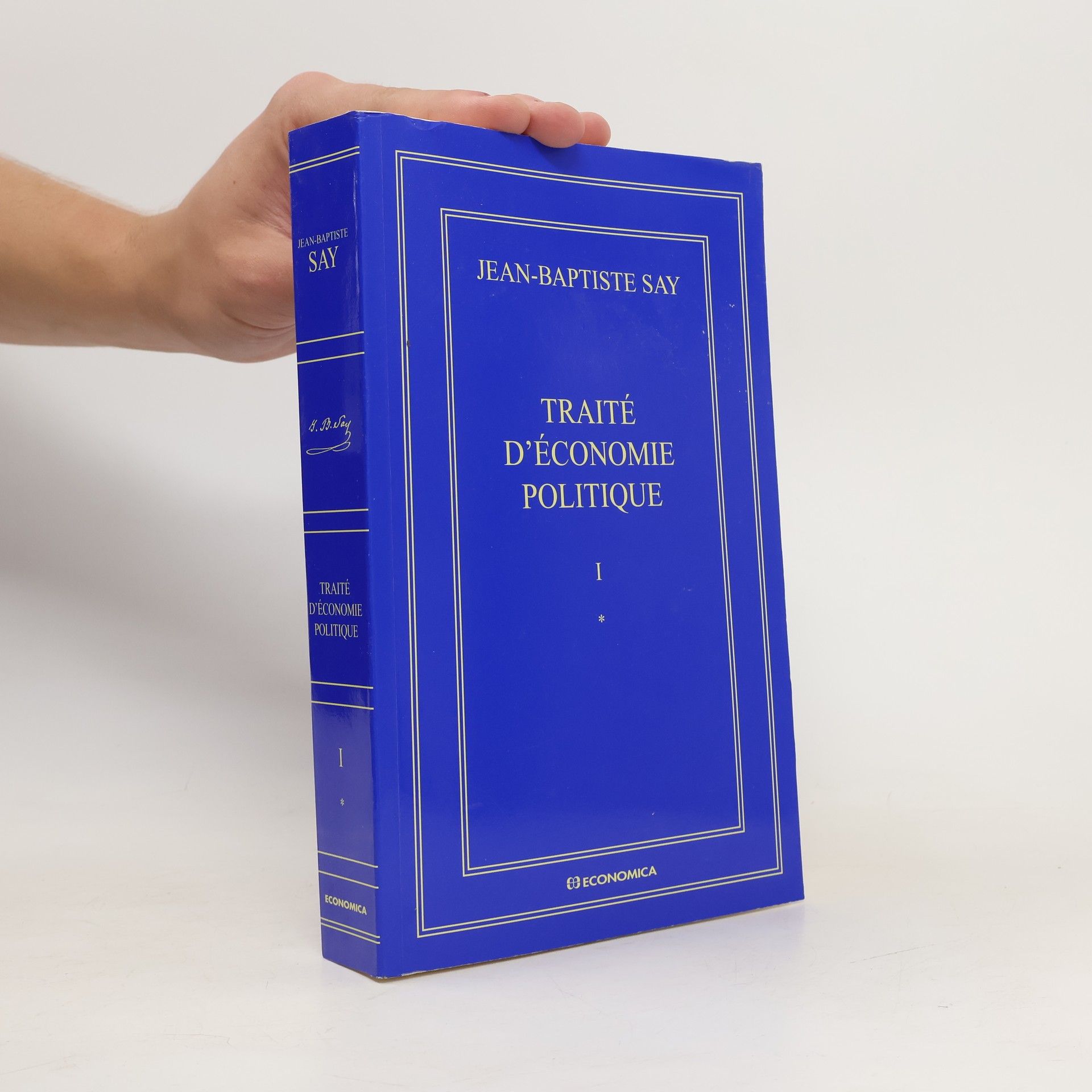La première édition du Traité d'Économie Politique parut en 1805, après trois ans de travail assidu de l'auteur, qui occupait alors un poste de tribun. Ses doctrines libérales et son caractère ferme ne pouvaient s'accorder avec un pouvoir dictatorial en pleine expansion, qui exigeait chaque jour davantage de sacrifices de liberté. En quittant le Tribunat, Jean-Baptiste Say refusa le poste de directeur des droits réunis dans le département de l'Allier pour préserver son indépendance et rester fidèle à ses convictions, choisissant de vivre dans la retraite. À cette époque, il se lança dans l'industrie. L'empereur, conscient de la résistance que Say avait opposée à ses demandes de modifier son ouvrage pour l'adapter aux "nécessités de l'époque", ne l'oubliait pas. La liberté de la presse était déjà compromise, et le libraire fut averti de renoncer à publier une seconde édition d'un livre qui avait connu un succès retentissant dès sa première apparition. Ce livre constitue une reproduction d'une œuvre historique importante, et Forgotten Books utilise une technologie moderne pour la reconstruire, tout en préservant son format original et en réparant les imperfections des copies anciennes.
Jean Baptiste Say Libros


Jean-Baptiste Say. 240 let od narození
- 109 páginas
- 4 horas de lectura